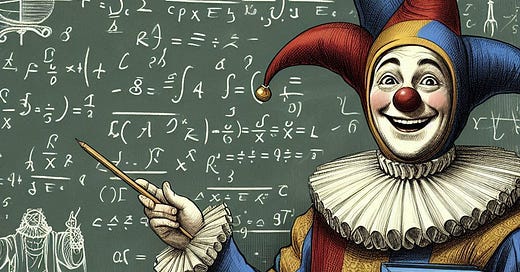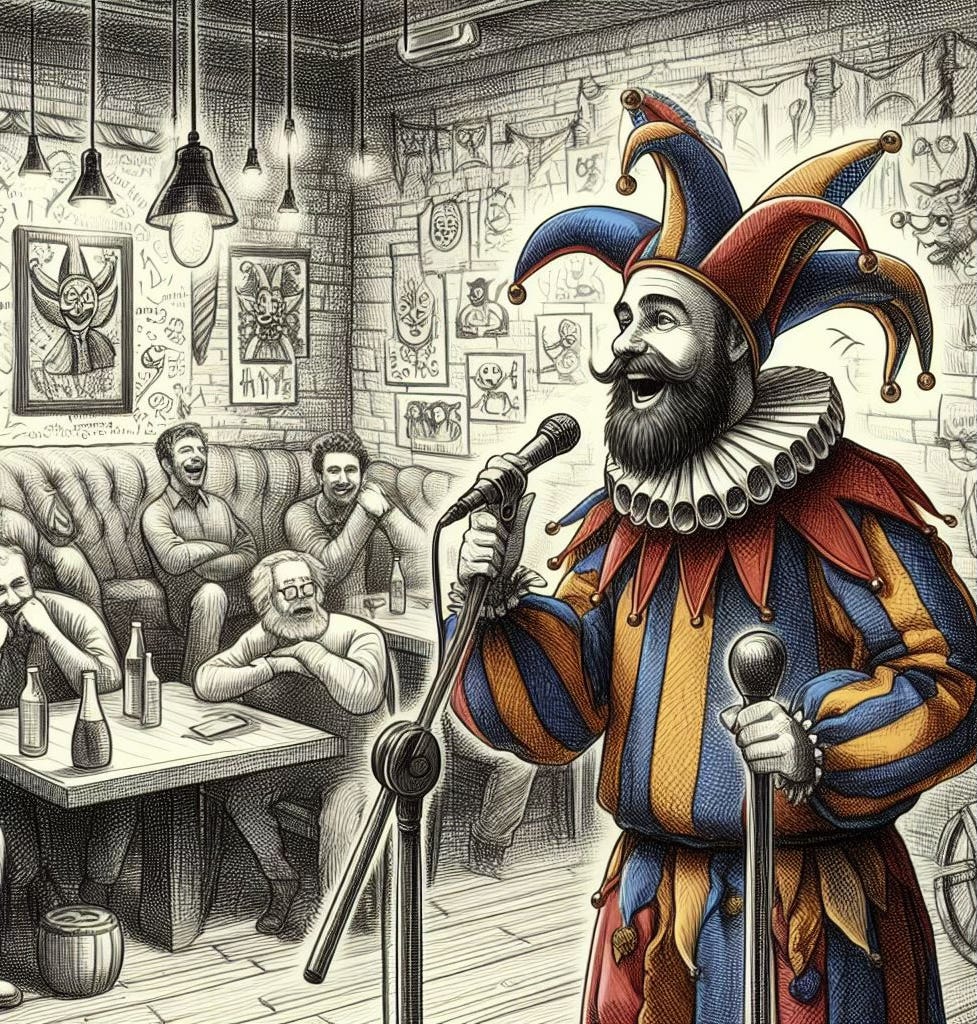Everyone is a fool at least some of the time.
There is always more we do not know than what we do. Even the rocket scientist has this problem. In order to do what he does, he has neglected many other fields of expertise.
He knows much about one subject, but little about others.
The same goes for all of us.
Erasmus wrote an entire essay on just this, titled In Praise of Folly [foolishness]. In it, Folly speaks to the reader directly. She argues all good things in the world come from her.
This might be somewhat extreme, but we can all agree on the conclusion of the work:
“No Man is wise at all Times, or is without his blind Side.”
According to Plato, philosophy begins in wonder. When the world puzzles us, it invites us to learn more about it. Science stems from the same impulse.
But humility might be equally important.
The following quote is often attributed to Socrates:
“All I know is that I know nothing.”
In reality, Plato quoted him saying something like:
“I do not think I know what I do not know.”
Some called Socrates the wisest man in Athens. Still, he was humble enough to admit what he did not know. Accepting his foolishness allowed him to overcome it.
Not only can foolishness and wisdom coexist; the former is the precursor to the latter.
Princes, priests, or presidents: we are all fools. Only those of us who accept that actually learn. It is therefore the first step towards self-improvement.
Should the rocket scientist take up salsa lessons, he will begin with the basics like everyone else. If he would laugh at his clumsiness, he would do himself a favor. Maybe it will even help him improve.
Each answered question usually lays bare multiple new ones.
Every scientific discovery usually lays bare a myriad of new problems. The rocket scientist will occasionally fall short, even within his own field. So long as he realizes this, it is not a problem.
This cures dogma, or: false assumptions.
In Medieval times, the jester played this role. He mocked the political powers that were, and in doing so ensured they remained open to some degree of criticism. But if he went too far, it could be the end of him.
He fulfilled a vital social function – and still does.
Tyrants always share one trait: certainty. Healthy authorities welcome ridicule since they have a sense of humor about themselves. Corrupt authorities, however, assume they know everything. Challenges are swiftly dealt with, even if they are funny. But if laughter is no longer welcome, this should be cause for social alarm.
The fool is to society like the canary in the coal mine.
Life is uncertain, which can be scary. That tempts us to make false assumptions. Sometimes, it feels better to pretend we know than admit we do not.
But if we comfort ourselves with lies, reality eventually comes knocking.
When reality hits us in the face, we are forced to admit: We are fools, and always have been. So, you might as well begin straight away.
Facing ignorance is a unique form of courage.
This is the niche of the noble fool. To him, certainty is a rare thing. But he can put that daunting truth in perspective. When confronted with the unknown, he remains humorous and free-spirited. That allows him to stay at ease.
Some comedians achieve massive success for a reason.
Dave Chappelle, Joe Rogan, and Jon Stewart are very different people. But, all three play the Jester’s part. They do not dictate people’s views, but simply alleviate their efforts to sort it out for themselves. This brings them fortune and fame. Evidently, there is much need for modern foolishness.
A good sign: The presence or absence hereof determines a society’s ability to put things into perspective. So long as people can laugh at themselves, they are not yet fully bitter.
So long as people acknowledge their limitations, they can still grow.
The fool will always admit to his ignorance. Since the world is now increasingly complex, this is a much-needed quality. Those who want to stay sane will have to preserve open-mindedness.
Only by facing your ignorance may you one day escape it.
Note: This is an abbreviated version. The original article is available here: https://medium.com/illumination/how-every-writer-is-a-fool-4b4dda9076f9?source=friends_link&sk=a80e50d00691ff1251528b657f6426af









